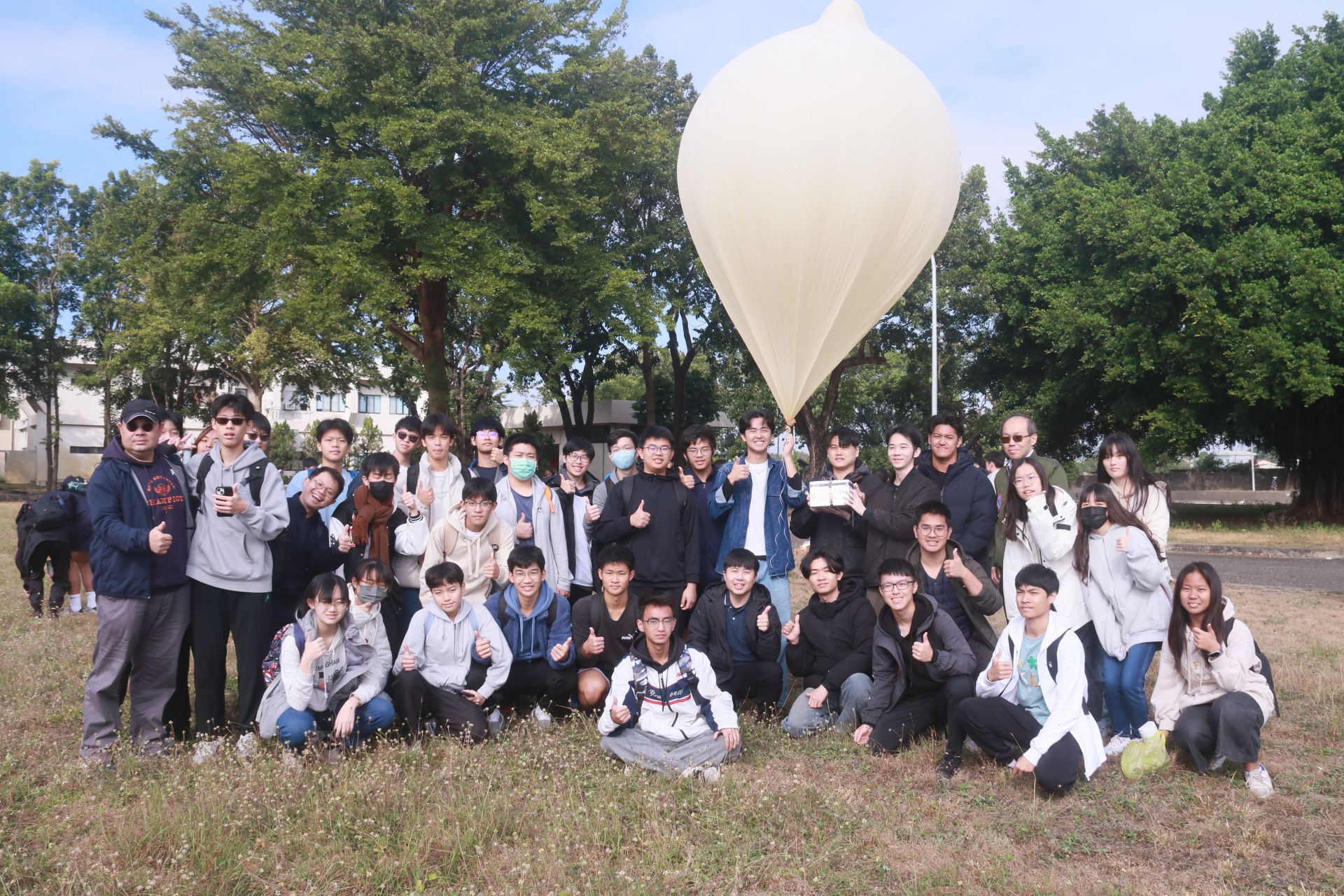SDG4
2025 U.S. Department of State CLS Program Begins – Students Embrace Challenges with Hope for Meaningful Growth
For the 10th consecutive year, the Chinese Language Center of the College of Liberal Arts at National Cheng Kung University (NCKU) is honored to host the U.S. Department of State’s Critical Language Scholarship (CLS) Program in 2025. This year, 29 outstanding students from 29 top universities across 17 U.S. states—including Yale University and MIT—are participating in the intensive Mandarin program held at NCKU from June 23 to August 14. Though the participants are well aware that the 8-week program presents a significant challenge, they are all determined to persevere in order to achieve meaningful progress.
The opening ceremony was held on the morning of June 23. In addition to all the students, attendees included NCKU Vice President Shyy-Woei Chang, Deputy Vice President for International Affairs Wei-Shiun Chang, Dean of the College of Liberal Arts Shin-Mei Kao, Associate Dean Chia-Huang Chen, Chair of the Department of History Hsing-Chuan Tsai, Professor Wen-Sung Chen, Political Section Chief of AIT Kaohsiung Branch Tung-Wei Huang, and American Councils for International Education Taiwan Representative Kath-Leen Yang, all of whom expressed their support and encouragement to the students.
Vice President Chang welcomed the students to Taiwan and to NCKU for their Mandarin learning journey. He remarked that NCKU’s ten consecutive years of hosting the CLS Program marks a major milestone, demonstrating the university's excellence in both the quality and scale of Chinese language education. He encouraged the students to go beyond language learning to explore Chinese history, the evolution of Chinese characters, and philosophical connotations, thereby gaining insight into the Chinese worldview and values. “Thank you for choosing NCKU to learn Mandarin, and thank you to the College of Liberal Arts and the Chinese Language Center for your dedicated work,” he said.
Political Section Chief of AIT Kaohsiung Branch Tung-Wei Huang reminded the students that language acquisition requires ample human interaction and conversation. He encouraged them not only to study Mandarin diligently but also to take the opportunity to learn about Taiwan’s culture, history, and even its philosophy.
Ms. Kath-Leen Yang, director at the American Council for International Education shared her personal experience as a 2016 CLS Mandarin scholarship recipient who studied at NCKU. She empathized with the students’ challenges and stress, urging them to believe in themselves. “You’ve already taken the first step by coming to Taiwan—your Mandarin will surely improve significantly over the next 8 weeks,” she said.
Amidst major political and economic shifts in the U.S., the continued implementation of the CLS Program—an official cooperation between the U.S. Department of State, Taiwan’s Ministry of Foreign Affairs, and Ministry of Education—highlights the value of U.S.-Taiwan collaboration and the recognition of NCKU’s commitment to curriculum excellence.
The CLS Program enforces a full Mandarin-only policy for the entire 8 weeks, both during and outside of class hours. This poses a major challenge not only to students but also to teachers, who must tailor lesson plans with precision and adapt to varied learning needs. Over the past decade, the Chinese Language Center has continually refined its curriculum. Some students have even improved by as many as 4 proficiency levels in just 8 weeks—testament to the center’s exceptional teaching and course design.
When asked about his motivation, student Chung-Cheng Shih, from the University of Pennsylvania, explained that China plays a pivotal role in international relations, and that strong Mandarin skills are essential. He sees the immersive CLS program as the best route to mastering the language. While confident in his speaking and listening skills, he hopes to improve his reading and writing further.
Student Yung-Chung Ho from Wake Forest University shared that the CLS program is highly competitive—he was rejected last year and is thrilled to have been accepted this time. In the U.S., he has many Chinese friends and often invites them to his home for Thanksgiving and Christmas to share American culture. Now, in Taiwan, he finds himself in a reversed role—being the foreign guest—and finds the experience fascinating.
Both student Ho and student Shih, just 3 days into the program, confessed that the Mandarin-only environment already feels intense. “Before we speak, we’re always thinking hard about how to say things correctly in Mandarin,” they said. They also expressed amazement at the vibrant streets and the large number of scooters in Tainan City.
This year’s program adopts a “seamless learning” approach, designed to comprehensively strengthen students’ listening, speaking, reading, and writing skills. Instructors are required to integrate thematic content creatively across all language domains. For example, a unit on environmental issues may involve in-class discussions, post-class exchanges with language partners, writing short reports, and even sharing personal views with host families for feedback—all aimed at real-life language application.
The Critical Language Scholarship is a fully funded U.S. government initiative promoting language learning in over a dozen critical languages worldwide. Since 2016, the program has partnered with NCKU to offer an immersive Mandarin summer course equivalent to one full academic year of U.S. university-level study in just 8 weeks. In addition to classroom instruction, the program includes homestays, language partners, and cultural field trips to help students understand Taiwan’s society and culture. Students who pass assessments accredited by Bryn Mawr College will also receive university credits upon completion.
The opening ceremony was held on the morning of June 23. In addition to all the students, attendees included NCKU Vice President Shyy-Woei Chang, Deputy Vice President for International Affairs Wei-Shiun Chang, Dean of the College of Liberal Arts Shin-Mei Kao, Associate Dean Chia-Huang Chen, Chair of the Department of History Hsing-Chuan Tsai, Professor Wen-Sung Chen, Political Section Chief of AIT Kaohsiung Branch Tung-Wei Huang, and American Councils for International Education Taiwan Representative Kath-Leen Yang, all of whom expressed their support and encouragement to the students.
Vice President Chang welcomed the students to Taiwan and to NCKU for their Mandarin learning journey. He remarked that NCKU’s ten consecutive years of hosting the CLS Program marks a major milestone, demonstrating the university's excellence in both the quality and scale of Chinese language education. He encouraged the students to go beyond language learning to explore Chinese history, the evolution of Chinese characters, and philosophical connotations, thereby gaining insight into the Chinese worldview and values. “Thank you for choosing NCKU to learn Mandarin, and thank you to the College of Liberal Arts and the Chinese Language Center for your dedicated work,” he said.
Political Section Chief of AIT Kaohsiung Branch Tung-Wei Huang reminded the students that language acquisition requires ample human interaction and conversation. He encouraged them not only to study Mandarin diligently but also to take the opportunity to learn about Taiwan’s culture, history, and even its philosophy.
Ms. Kath-Leen Yang, director at the American Council for International Education shared her personal experience as a 2016 CLS Mandarin scholarship recipient who studied at NCKU. She empathized with the students’ challenges and stress, urging them to believe in themselves. “You’ve already taken the first step by coming to Taiwan—your Mandarin will surely improve significantly over the next 8 weeks,” she said.
Amidst major political and economic shifts in the U.S., the continued implementation of the CLS Program—an official cooperation between the U.S. Department of State, Taiwan’s Ministry of Foreign Affairs, and Ministry of Education—highlights the value of U.S.-Taiwan collaboration and the recognition of NCKU’s commitment to curriculum excellence.
The CLS Program enforces a full Mandarin-only policy for the entire 8 weeks, both during and outside of class hours. This poses a major challenge not only to students but also to teachers, who must tailor lesson plans with precision and adapt to varied learning needs. Over the past decade, the Chinese Language Center has continually refined its curriculum. Some students have even improved by as many as 4 proficiency levels in just 8 weeks—testament to the center’s exceptional teaching and course design.
When asked about his motivation, student Chung-Cheng Shih, from the University of Pennsylvania, explained that China plays a pivotal role in international relations, and that strong Mandarin skills are essential. He sees the immersive CLS program as the best route to mastering the language. While confident in his speaking and listening skills, he hopes to improve his reading and writing further.
Student Yung-Chung Ho from Wake Forest University shared that the CLS program is highly competitive—he was rejected last year and is thrilled to have been accepted this time. In the U.S., he has many Chinese friends and often invites them to his home for Thanksgiving and Christmas to share American culture. Now, in Taiwan, he finds himself in a reversed role—being the foreign guest—and finds the experience fascinating.
Both student Ho and student Shih, just 3 days into the program, confessed that the Mandarin-only environment already feels intense. “Before we speak, we’re always thinking hard about how to say things correctly in Mandarin,” they said. They also expressed amazement at the vibrant streets and the large number of scooters in Tainan City.
This year’s program adopts a “seamless learning” approach, designed to comprehensively strengthen students’ listening, speaking, reading, and writing skills. Instructors are required to integrate thematic content creatively across all language domains. For example, a unit on environmental issues may involve in-class discussions, post-class exchanges with language partners, writing short reports, and even sharing personal views with host families for feedback—all aimed at real-life language application.
The Critical Language Scholarship is a fully funded U.S. government initiative promoting language learning in over a dozen critical languages worldwide. Since 2016, the program has partnered with NCKU to offer an immersive Mandarin summer course equivalent to one full academic year of U.S. university-level study in just 8 weeks. In addition to classroom instruction, the program includes homestays, language partners, and cultural field trips to help students understand Taiwan’s society and culture. Students who pass assessments accredited by Bryn Mawr College will also receive university credits upon completion.
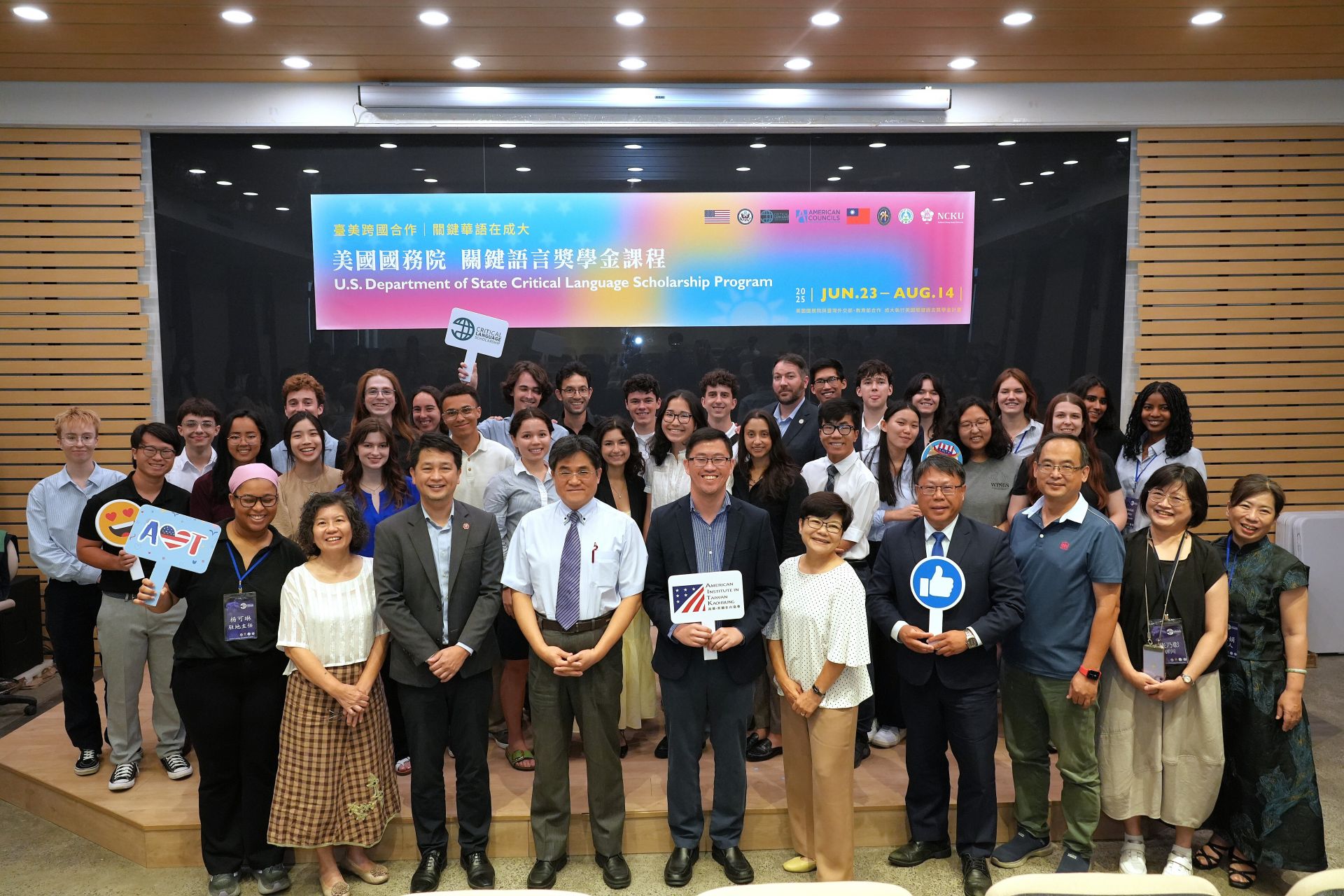
Group photo from the opening ceremony of the 2025 Critical Language Scholarship Program led by the U.S. Department of State and hosted by NCKU Chinese Language Center
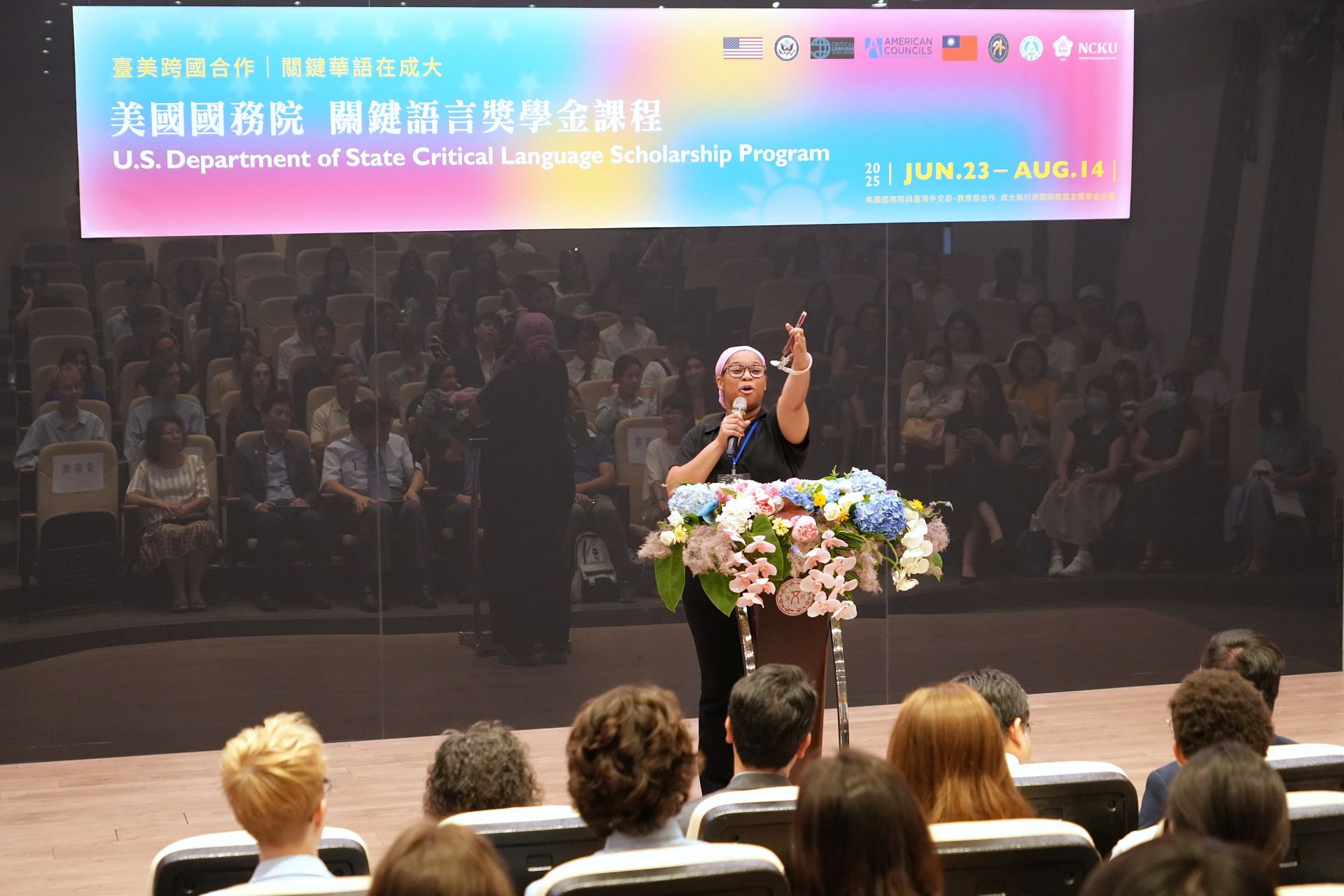
Ms. Kath-Leen Yang, director at the American Council for International Education, encourages students to believe in themselves and overcome challenges in learning Chinese
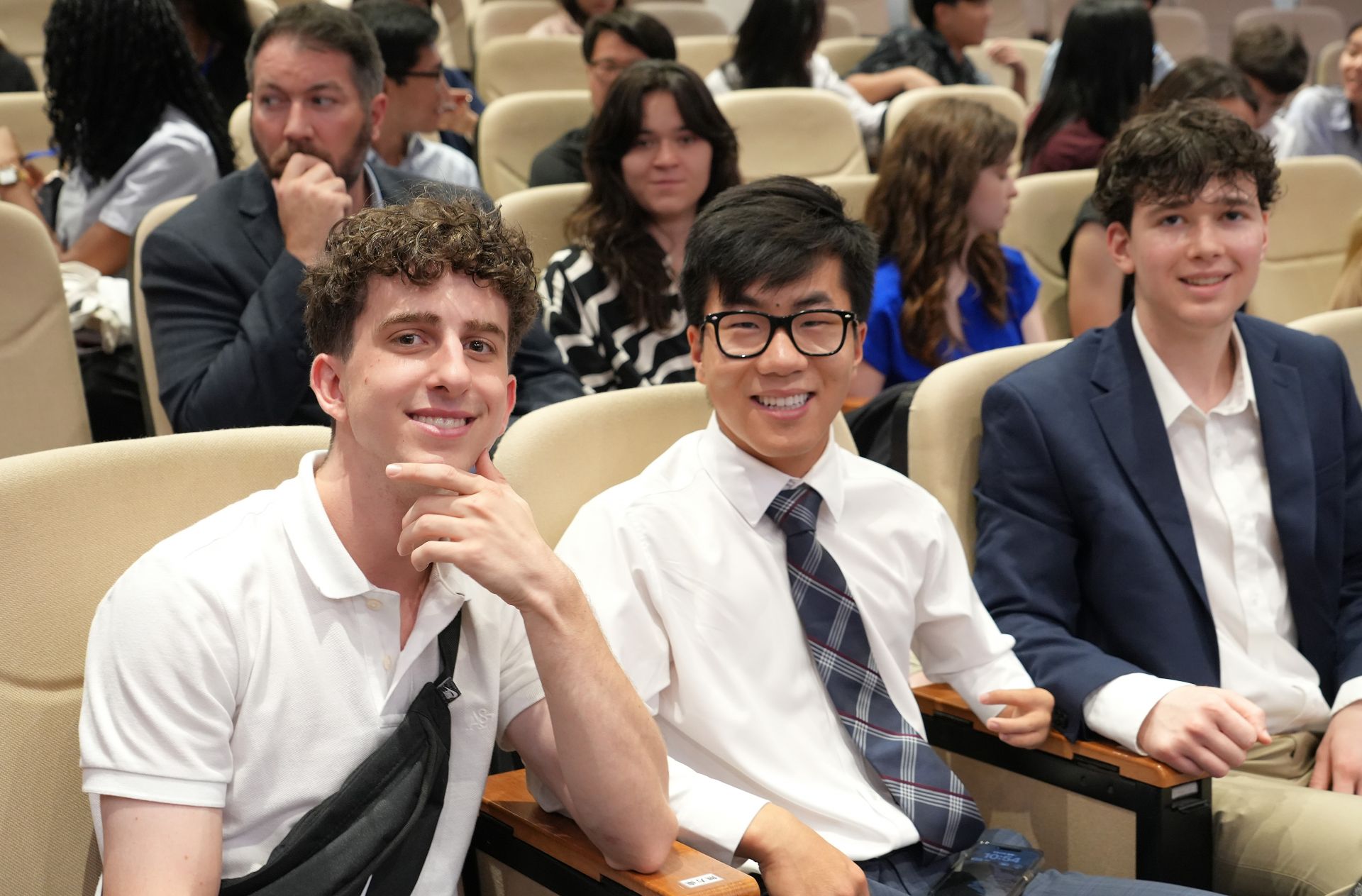
Students look forward to the 8-week immersive Chinese language learning experience
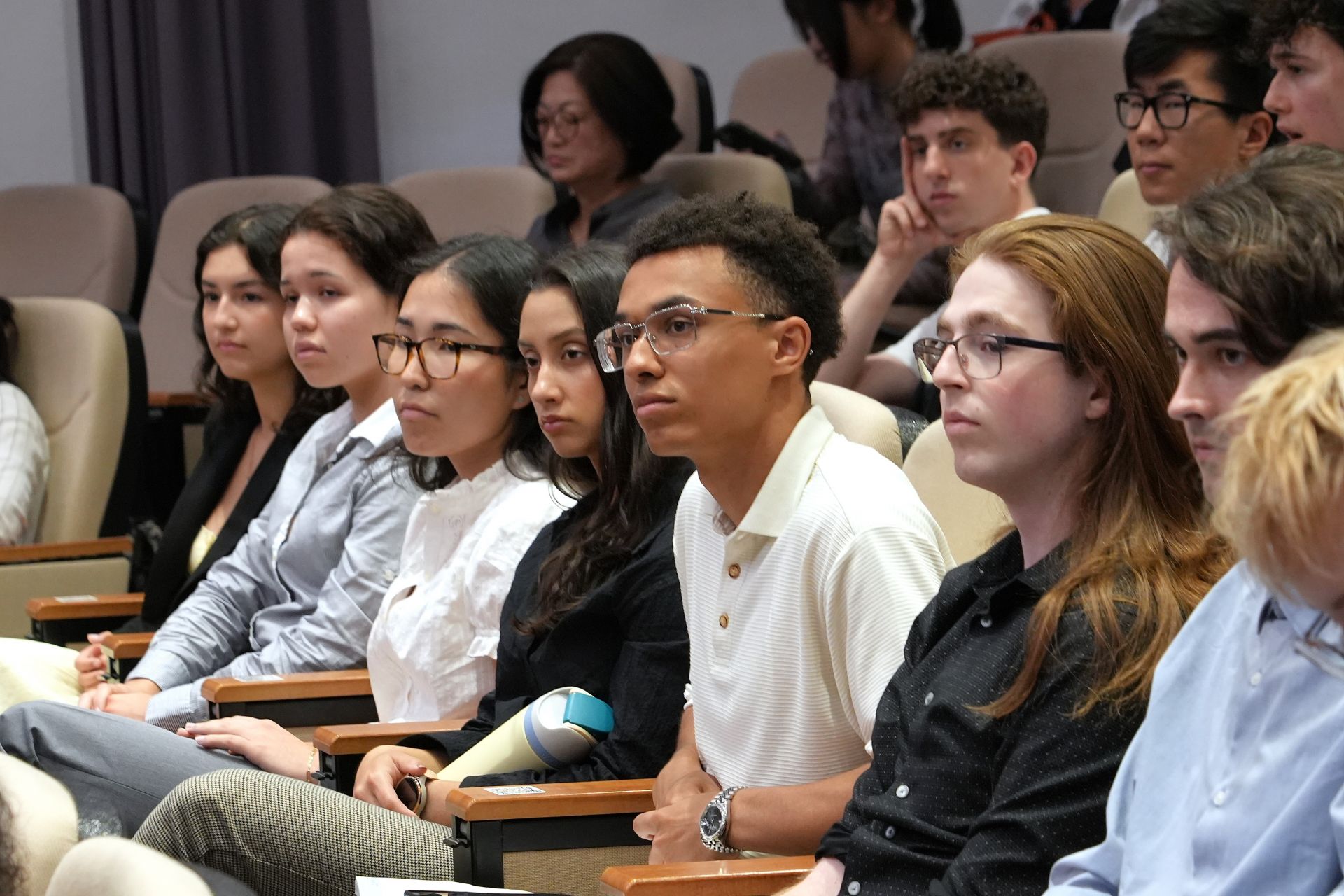
The requirement to speak only Chinese both
in and out of class throughout the 8-week program is a significant challenge for the students
![[Phoenix Lecture] Academia Sinica Academician Shang-Cheng Hong : The Motivation Behind Scientific Research is to Help Society](/userfiles/images/20241216040515125.jpg)
SDG4[Phoenix Lecture] Academia Sinica Academician Shang-Cheng Hong : The Motivation Behind Scientific Research is to Help Society
View more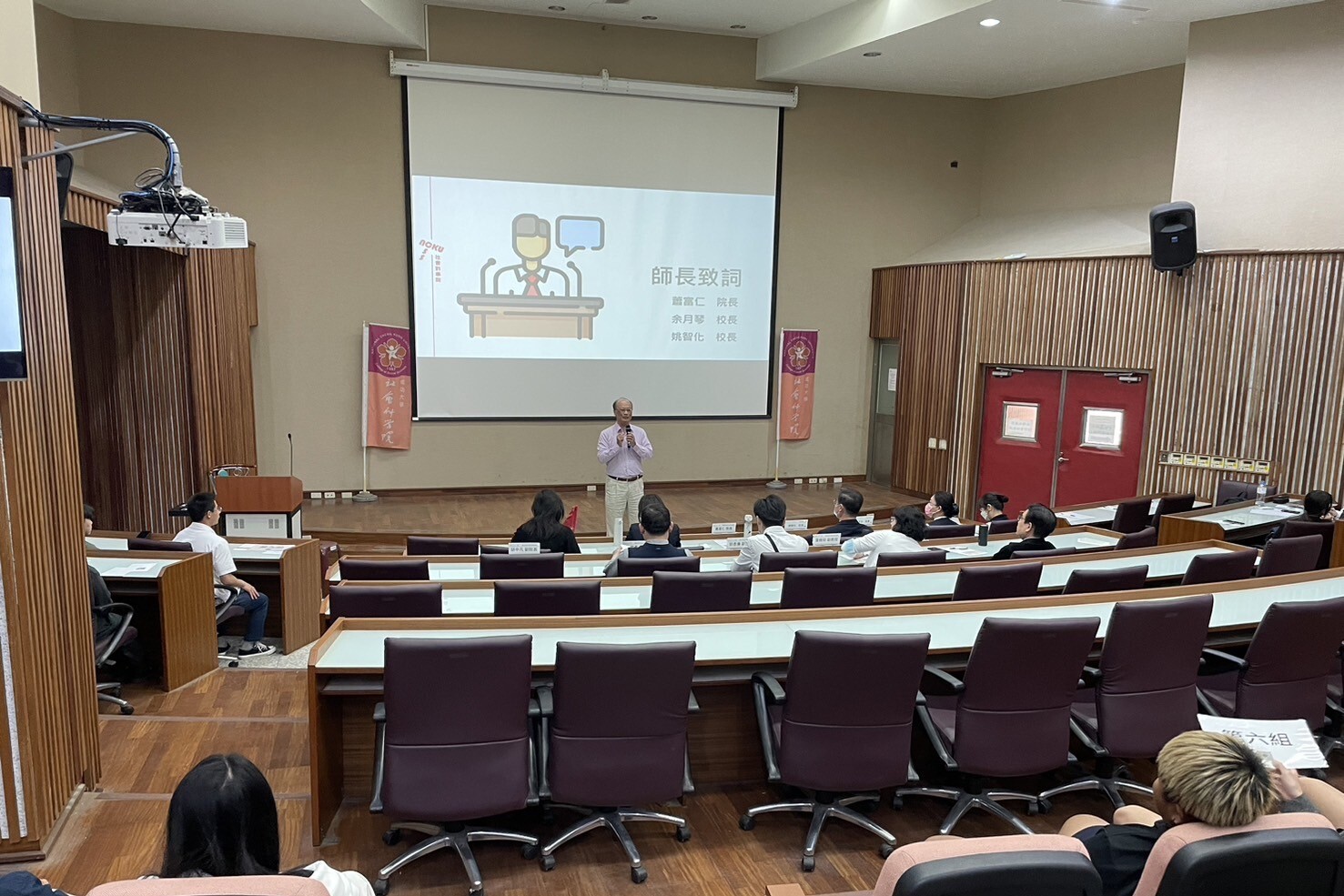
SDG4"NCKU's "Leadership and Action" Course Collaborates with Yong-Ren and Tzu Chi High Schools."
View more